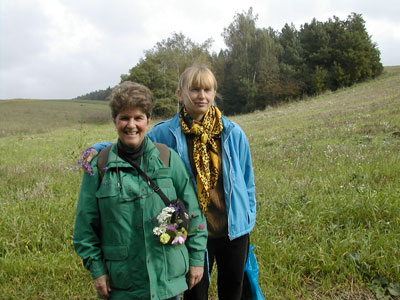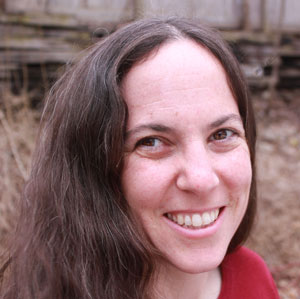 The question that invariably came up when folks who didn’t know me well learned I was producing a radio documentary honoring the 50th anniversary of the Peace Corps was, “were you in the Peace Corps?” or, more presumptuously, “where (or when) did you serve in the Peace Corps?” The people close to me, on the other hand, wanted to know whether I was including my mother, who served in the country now called Sri Lanka from 1962-1964.
The question that invariably came up when folks who didn’t know me well learned I was producing a radio documentary honoring the 50th anniversary of the Peace Corps was, “were you in the Peace Corps?” or, more presumptuously, “where (or when) did you serve in the Peace Corps?” The people close to me, on the other hand, wanted to know whether I was including my mother, who served in the country now called Sri Lanka from 1962-1964.
My lack of first-hand Peace Corps experience gave me a journalist’s perspective on the program, though one certainly influenced by my mother’s stories and, for that matter, those of my many friends who have served. They all took seriously the expectation in the Peace Corps’ mission statement that volunteers share their experiences once they arrive back home. Happily, I never had to confront the journalistic dilemma of whether to include my mom because she was ineligible. The two criteria for potentially being included in Peace Corps Voices were: being a returned Peace Corps volunteer and having original recordings made in-country during your years of service. My mom didn’t save any audio—but plenty of others did, even some serving in those early years of the 1960s.
I’ve heard sounds from Ghana, recorded by a member of one of the very first groups of volunteers, and from the 35th anniversary celebration of the Peace Corps in St. Lucia, another country that welcomed volunteers from the very beginning. There is singing from West African villages in Sierra Leone and Togo and the narrative of two intrepid teacher-trainers in Peru in the 1970s.
Predicating an hour of public radio on old recordings made, usually, by amateurs with consumer equipment posed some major challenges. The sounds arrived in my snail mail box on cassette tapes, minidisks and CDs; I traveled to Boston and Hartford, Conn. to pick up magnetic tape on reels (two different sizes). Some audio was amazing, other recordings unusable. Recent recordings were posted to my FTP site in easy-to-use digital formats. I contacted the presidential libraries of John F. Kennedy and George H. W. Bush and included send-off comments each made in the Rose Garden to departing Peace Corps volunteers. I read historical accounts of the Peace Corps, contemplated its changed status from the idealism of the early Kennedy years to its near demise under Nixon. I considered objections I’d heard to the program, most notably the arrogance of sending young Americans abroad to “make them like us” (a double-entendre meant either to convey a desire for those in the developing world to favor us [over the Soviets, no doubt], or a mandate for volunteers to convert people of other cultures into something similar to Americans).

Leyden resident Betsey Yetter (left) served in the Peace Corps in Ukraine, working with local women including Tatiana Ostapenko (right) on defining needs and developing social services. (photo courtesy of Betsey Yetter)
Volunteers in my documentary taught French and English, helped primary school teachers develop reading materials, promoted adult literacy programs, launched empowerment opportunities for young girls and brainstormed fruit storage with farmers. Some projects went well, some never got off the ground and the work was exactly, or completely different from, what the volunteers expected.
But as I curated the stories of the dozen or so volunteers who made it into my production, one theme emerged. It’s something not unique to Peace Corps among agencies sending Americans abroad, but that makes Peace Corps unique among federally-sponsored (and funded) programs. Invariably, the volunteers spoke of the close personal connections they made in their communities. They worked with the residents to achieve goals that often pre-dated the volunteers’ arrival and, the hope was, would last long after their departure. The relationships they formed, regardless of the jobs they did and the relative success or failure of their work efforts, helped volunteers and locals learn about each other. They diminished stereotypes about different cultures and built foundations on which future collaborations could be formed.
In locations far from the halls of power in Washington, D.C. and generally devoid of the obligatory government-bureaucrat business suit, the more than 200,000 alumni of the Peace Corps have lived abroad and simultaneously served their country. We are not currently enjoying a peak in American acceptance around the world. But we probably have the Peace Corps to thank, in part, for the popularity we once enjoyed. And volunteers on the ground today are likely preventing anti-American sentiment from brewing in ways and in places we may never know about. The volunteers aren’t preaching federal policy and, in fact, are free to express their disdain for it. And in doing so, they demonstrate that a free society peacefully embraces everyone, even its dissenters.
Recently, the Pioneer Valley Institute sponsored a program about Peace Corps Voices at Greenfield  Community College. Though many in attendance had a Peace Corps connection, one man who didn’t commented that he’d had no idea that Peace Corps was still going strong nor how varied and interesting the work still was. His words left me feeling that thanks to the generosity of the volunteers I met, and the recordings they preserved, I, too, had contributed to the Peace Corps’ mission.
Community College. Though many in attendance had a Peace Corps connection, one man who didn’t commented that he’d had no idea that Peace Corps was still going strong nor how varied and interesting the work still was. His words left me feeling that thanks to the generosity of the volunteers I met, and the recordings they preserved, I, too, had contributed to the Peace Corps’ mission.
Peace Corps Voices, made possible in part by a grant from Mass Humanities, can be listened to in its entirety via the project’s web site.
Amy Mayer


